For startup companies, programs like incubators and accelerators can provide much-needed resources and support. But how do you know if your startup is ready for a program? With over 30,000 accelerators worldwide, it can be tough to determine which and if a program right for your startup. And even if you do find the perfect fit, getting accepted is no guarantee of success.
Incubators and accelerators are programs designed to support startups as they grow and scale. These programs typically offer mentorship, access to funding, networking opportunities, and other resources that can be helpful for early-stage companies. They usually last for three to six months and culminate in a demo day, during which startups pitch their businesses to investors. While accelerators can benefit startups, ensuring they are a good fit for your business is crucial.
So, how can you tell if your startup is ready for an accelerator? And if you decide to apply, what should you do to increase your chances of acceptance? In this article, we’ll cover some signs indicating if your startup might benefit from a program, as well as whether an accelerator should be your first step.
What is an accelerator program?
An accelerator is an educational program that helps entrepreneurs gain the skills, knowledge, and networks they need to start and grow their businesses successfully. The program provides access to mentorship, funding, and most often times, an office space.
Accelerator programs typically last for a set period, during which participants work intensively on developing their businesses. At the end of the program, participants usually present their companies to a panel of judges to receive feedback and further support.
There are many different types of accelerator programs, each with its own focus and offerings. Some programs focus on specific sectors such as technology or healthcare, while others take a more general approach. Some programs are geared towards early-stage businesses, while others work with more established companies.
Ultimately, the right accelerator program for a given business depends on the company’s needs and goals. However, all accelerator programs share the goal of helping entrepreneurs turn their innovative ideas into successful companies.
What are the different types of accelerators?
When it comes to starting a business, there is no one-size-fits-all approach. Accelerator programs are designed to give startups the resources and support they need to succeed. However, not all accelerator programs are the same. Some programs focus on specific industries, while others provide generalized support. The key is to find the right program for your specific needs. Here is an overview of the different types of accelerator programs:
Cohort-based model
Various accelerator programs and models are available in the United States for startups. The most common type of program is the cohort-based model, which brings together a group of startups to go through the program together. This model typically lasts 3-6 months and provides mentorship, resources, and programming designed to help startups grow their businesses.
Sector-focused accelerator

Another type of program is the sector-focused accelerator, which focuses on a specific industry or market. These programs often have a shorter duration, lasting 2-3 months, and provide specialized mentoring and resources to help the startups in that sector succeed. Some programs focus on social impacts, such as those that help businesses work to solve problems in areas like education, healthcare, or environmental sustainability.
The Seed Accelerator
The seed accelerator model is focused on providing early-stage funding and mentorship to startup companies. This model is particularly popular with companies developing new technologies or ideas. The tech transfer model is designed to help startups commercialize new technologies developed at universities or research institutions. This model is often used by startups that have already secured some initial funding.
The Corporate Venture Model
The corporate venture model is typically used by large corporations that want to invest in new and innovative businesses. This model can provide startups with access to a larger pool of resources, but it also comes with a higher level of risk.
Labs-to-funding model
The Labs-to-funding model is another very common type of startup accelerator. In this model, a few startups are invited to join an accelerator’s program and are given a small initial investment. As the accelerator progresses, they provide the startups in the program with additional funding and mentorship.
At the end of the accelerator’s program, the startups will have received enough funding and mentorship to become self-sufficient. This model is advantageous for accelerators because it allows them to determine their return on investment. However, it can be disadvantageous for startups because they may not receive as much funding or mentorship as they would in other models.
Investment-to-equity model
The Investment-to-equity model is a popular choice for accelerators because it allows them to make a small investment in many companies. With this model, the startup is given an investment immediately. At the end of the program, the accelerator will take a percentage of the company’s equity in exchange for the investment.
Many accelerators that use this model don’t want to take a significant equity stake in the company because they are looking to make lots of small investments. This strategy provides the accelerator with a steady stream of new companies to invest in and helps to diversify its portfolio.
Additionally, it allows the accelerator to exit its investment more quickly if the company is successful. However, it also means that the accelerator has less control over the company and may not see as much return on its investment if the company fails.

Equity-for-services model
The Equity-for-services model is a startup accelerator that doesn’t provide any initial funding. Instead, the accelerator offers a range of services, from mentorship to office space, in exchange for a small equity stake in the company. This model can be attractive for startups looking for more than just money; it can also offer valuable resources and connections.
However, it’s important to remember that the accelerator is also looking for a long-term relationship with the company. As such, the accelerator may be less inclined to invest in a company that it feels isn’t a good fit for its program.
Many accelerator programs are available, each with various benefits and drawbacks. As a result, it is essential for companies to carefully consider their needs before selecting a program. However, by aligning the program’s goals with their initiatives and conditions, companies can ensure they receive the maximum benefit from the accelerator experience.
What is the difference between a startup accelerator and an incubator program?
Regarding startup programs, there are two main options: accelerators and incubators. While both have benefits, the choice depends on the company’s specific needs.
Generally speaking, accelerator programs are shorter and more focused on helping startups reach critical milestones. They typically last 3-6 months and focus on helping startups grow their business through access to resources, mentorship, and connections. An accelerator is the better option if the goal is simply to inject cash into a proven startup to fuel growth. Additionally, most accelerators take a small amount of equity in exchange for participation.
Incubator programs, on the other hand, are more extended (6-24 months) and offer a more hands-on approach. In addition to providing access to resources and mentors, incubators often have physical space for startups to work out of. They also tend to be sector-specific, focusing on supporting startups in a particular industry. Many incubators do not take equity in exchange for participation.
That being said, there are some companies that offer a hybrid-based accelerator/incubator model allowing for more flexibility for companies that enter the program. For example, Macclerator’s program “ReThink the Accelerator Model” is just that. A hybrid accelerator and incubator program, to design a clear strategy, create traction and go to market plan for your startup. By working with our process on business, marketing, pitching, and growth hacking, we can help boost your startup quicker.
So which type of program is right for your company? It depends on two main things:
- What you’re looking for.
- The stage of your company.
An incubator might be a good fit if you’re looking for intensive mentorship and guidance and your company is still in the early stages of development.
An accelerator could be a better option if you’re further along in your startup journey and are primarily looking for resources and connections. Ultimately, the choice comes down to what will help your company grow and succeed.

Considerations when applying to an accelerator program
Any entrepreneur knows that starting a business is no small feat. There are a million and one things to think about, from the products or services you’re offering to the marketing and sales strategies you’ll use to reach your target audience. And if you’re seeking funding for your business, the process can be even more daunting.
However, accelerator programs can provide entrepreneurs the support and resources to take their businesses to the next level. But before you apply to an accelerator program, there are a few key considerations to keep in mind.
- Investment: The investment amount is an important consideration – how much are you willing to give up for a chance at success?
- Mentorship: Mentorship needs vary from business to business – what kind of guidance do you need to get your business off the ground?
- Networking: Networking opportunities are another critical factor – will the program introduce you to potential investors and customers?
- Reputation: The accelerator’s reputation is essential – choose a program with a good track record of helping businesses succeed.
- Competitiveness: How competitive is the application process – Are you confident you have what it takes to stand out from the crowd?
Make sure to choose a program that will give you access to the resources and mentors you need and be prepared to do the work. Accelerator programs are intense, and they require a significant time commitment. But if you’re willing to put in the effort, an accelerator program can be invaluable on the road to success.
Is an accelerator program right for your startup?
The startup ecosystem is ever-changing and constantly evolving. There is a multitude of studies that have been conducted to try and understand this complex web. With the average accelerators graduating 9.6 startups per cohort and an average of 2.6 cohorts per year, meaning the average global accelerator program graduates roughly 25 companies annually.
With this in mind, it is safe to say that accelerators and incubators play a significant role in the success of startups worldwide. As the startup community continues to grow and evolve, it will be interesting to see how these programs adapt and change.

M Accelerator
M Accelerator’s startup programs aren’t typical knowledge-based programs. M AC offers a unique opportunity for founders to gain the skills and strategic focus they need to succeed.
As mentioned above, selected startups join our Rethink the Accelerator Model Program. Through the online program, entrepreneurs can connect with our coaches, and mentors, receive feedback on their businesses, and attend workshops and events.
M Accelerator also offers a multimodal approach that includes access to experts, investors, resources, and a community of like-minded individuals who can provide guidance and advice.
Unlike traditional startup accelerators, we don’t offer theories. Instead, we help you make better decisions and do the work. Whether you participate virtually or in person at our space in Los Angeles, you’ll have access to our pool of expert mentors and ample resources.
The goal is to help startups grow and scale quickly while minimizing the risks associated with early-stage businesses. M Accelerator’s programs have a proven track record of success, and their team is dedicated to helping startups succeed.
For more information, please visit M Accelerator’s programs to learn more about our offerings and events today!




